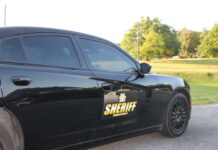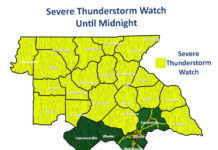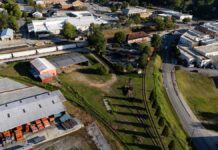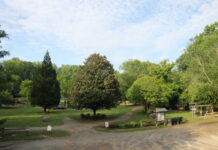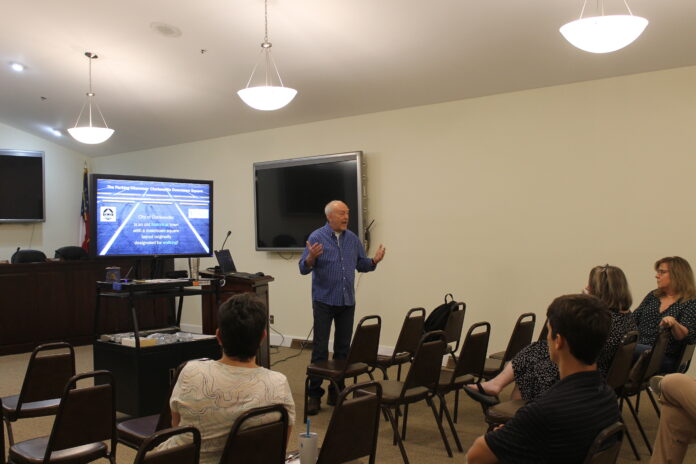
City Manager Keith Dickerson’s office determined an estimated 12,000 vehicles travel through Clarkesville a day – a stream of potential revenue downtown businesses could reap with greater parking availability.
This was among several statistics cited by Councilman Brad Coppedge during Monday’s public forum at Clarkesville City Hall, where officials and nearly a dozen local business owners took a closer look at the city’s current parking policy.
Clarkesville has a total of almost 600 parking spaces in and around the city, Coppedge said, with about 88 on the square and nearly 500 (off-square) along the perimeter of the downtown area.
“We have parking,” Coppedge said. “We just have to find a way to best manage it.”
The real challenge, as identified by city officials, involves parking on the downtown square amid a growing population, increased tourism and booming business scene.
“We’re kind of looking at all elements of what’s going on in this community – because we are a growth community,” Coppedge said Monday. “Over the next 5-7 years, we’re having a (projected) influx of 17,000 people into Habersham County. You’re not going to stop the growth. We just need to be smart about it.”
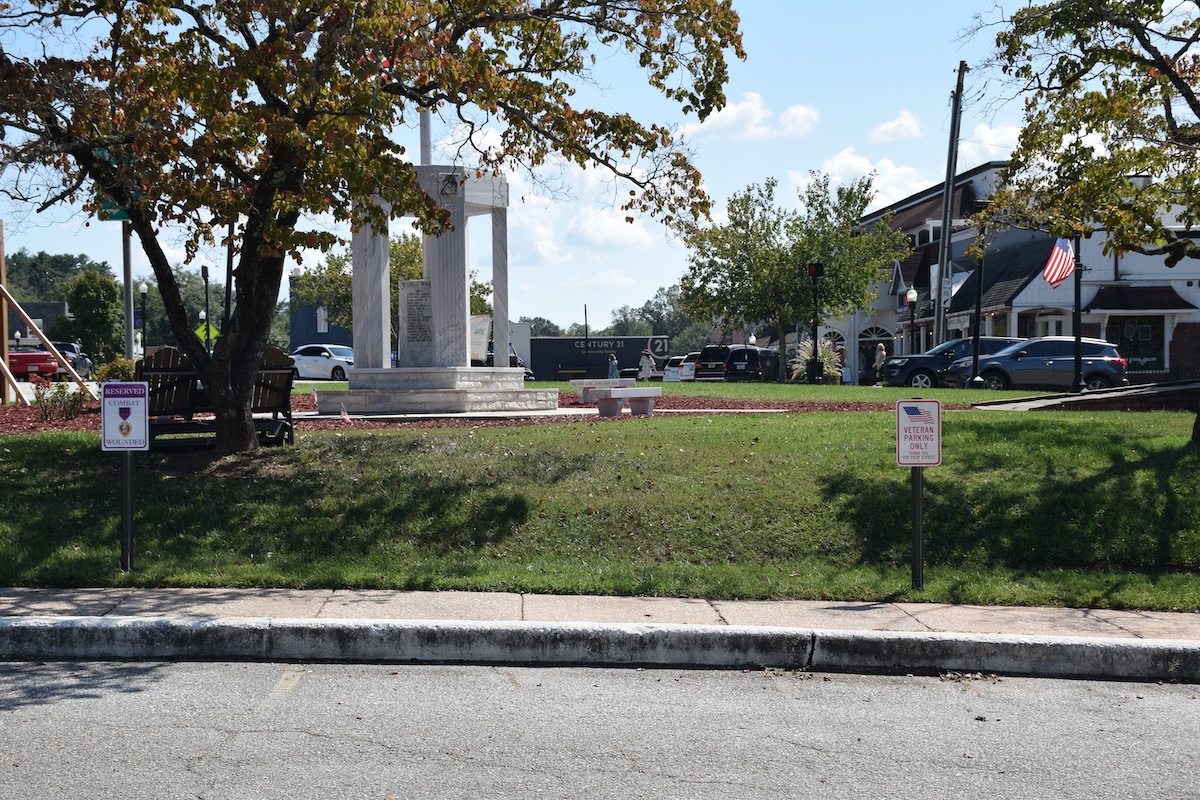
Before the presentation, Coppedge described Clarkesville’s parking problem as being closely tied to the long-term health of downtown commerce. And “unless we start figuring this out,” according to Coppedge, “it’s going to continue to be a problem, and then we’re going to see a turnover of businesses.”
“We’re going to see businesses come – they’re going to be open for 6-9 months, and then we’re going to see an empty space,” he said. “Then, we’re going to see someone else come in and try to do it. They’re all having the same challenges. We’ve got to make sure we’re addressing what the dynamics are, and dealing with them.”
Coppedge went on to present eight options the city could adopt to “best utilize current capacity” and improve its parking dilemma.
Options
- Require all downtown square business employees to use all five perimeter public parking lots – which will free up a minimum of 20% (18 spaces) of overall daily parking spots.
- Test specific parking spots and signage for retailers that have appointment-based, order pick-up and delivery-oriented business operations. Coppedge explained this option would in effect reserve specific slots for businesses that require extended parking for a certain duration of time.
- Require all upper level business retailers and housing renters to utilize the five designated perimeter public parking lots. (Each new designated parking spot could generate additional revenue of at least $300 a week, according to Coppedge. While this could free-up parking areas on the square, as mentioned during the forum, it could also pose a challenge for older populations. This option could be considered on a case-by-case basis, he said.)
- A potential redesign and decrease slot size of both downtown square parking lots to increase parking space count with smaller sizing efforts, in addition to a new parking lot layout. Current parking areas on the square are 9-feet in size. (This option would be implemented in conjunction with a parking study, which Coppedge suggested could be conducted by an institution like the University of Georgia at no cost. Still, such a plan could potentially come at a cost to the city.)
- Added extra ‘free public parking’ signage to direct shoppers to the five overflow lots throughout the city’s downtown area. (Coppedge said he believes this could create additional parking space on the square. He added that there’s no plans to charge for parking.)
- Create new designated wholesaler, UPS and Federal Express delivery areas and food truck staging areas on both sides of Water Street.
- Request that all downtown housing landlords require their renters use their ‘back of building’ parking lot.
- Clarkesville’s Main Street team will be reviewing downtown promotional events that best drive retailer sales growth – but do not add to current parking issues.
Takeaways
Property and business owners expressed tentative sentiment following the forum, though a majority of them agreed that the first step to improve parking in Clarkesville is through continued talks with city officials. A common consensus among those in attendance was that employees and business owners should be required to park in areas away from the downtown square.
“Mostly, we need signs (for non-employee public parking),” said Samantha Gore, owner of Old Towne Pub. “I see the square all day from 8 a.m. – 5 p.m. It’s specific people who park there all day, and they happen to be business owners.”
Peyton Davis, owner of Four Seasons Styling Salon, agreed that establishments “need to make sure employees and business owners park elsewhere” – not on the square.
“Let’s see what happens and go from there,” she said. “One step at a time.”
Coppedge called the forum a step in the right direction, adding that he’d be inclined to support a new policy that prohibited employees and business owners from parking on the square during business hours – if necessary.
“There’s got to be ownership,” he said. “If we all agree on one, two or three policy changes, then we have to own it. And we have to enforce it, individually, as businesses. If something isn’t done, this conversation is going to continue, and it’s only going to get more complicated as the traffic picks up and as more people are coming to the downtown area. Those parking spots are going to become even more valuable.”


